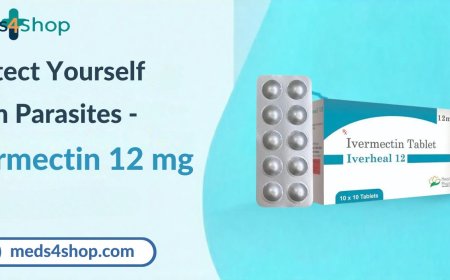Heart Transplants: What You Should Know Before It’s Too Late
Learn everything you need to know about heart transplant surgery, from eligibility and procedure to recovery and long-term care. This detailed guide also covers important considerations like heart transplant cost in India to help patients make informed decisions.

A heart transplant is one of the most complex and life-saving medical procedures available today. It offers a chance at extended life and improved quality of life for patients whose hearts can no longer function properly due to severe disease or damage. While the term itself can sound intimidating, the more you understand the process, the better prepared you will be to face it with clarity and confidence.
This guide is designed to give you a complete overview of heart transplants from medical necessity to life after surgery. Whether you are a patient, caregiver, or simply looking to understand the topic better, this information will help you make informed decisions when it matters most.
When Is a Heart Transplant Needed?
A heart transplant is typically recommended when a patient has advanced heart failure or severe heart disease that no longer responds to medication or other forms of treatment. In such cases, the heart becomes too weak or damaged to pump blood effectively, leading to fatigue, breathlessness, swelling, and a poor quality of life.
Some common medical conditions that may lead to a heart transplant include:
-
Dilated cardiomyopathy, where the heart chambers become enlarged and weak
-
Ischemic cardiomyopathy, usually caused by coronary artery disease
-
Severe congenital heart defects that cannot be corrected surgically
-
Repeated episodes of life-threatening arrhythmias
-
End-stage valvular heart disease
In these cases, doctors may determine that heart transplant surgery is the only option to extend the patients life and restore better function.
Evaluation and Eligibility
Before being considered for a heart transplant, patients must go through a comprehensive evaluation at a transplant center. This process involves multiple specialists and is designed to determine whether the patient is a good candidate for the procedure.
The evaluation typically includes:
-
Blood tests, imaging, and cardiac function tests
-
Kidney, liver, and lung assessments
-
Infectious disease screenings
-
Nutritional evaluations
-
Psychological and psychiatric evaluations
-
Social and family support assessments
Doctors also consider whether the patient is likely to follow the strict medication and lifestyle regimens required after the surgery. If approved, the patient is added to a national or regional waiting list until a suitable donor heart becomes available.
Waiting for a Donor
Once on the transplant list, patients must wait for a donor heart that matches their blood type, body size, and other compatibility factors. The waiting period can range from days to months, depending on urgency and availability.
During this time, patients are closely monitored and may continue receiving medication or use mechanical support devices such as ventricular assist devices (VADs) to help maintain heart function while they wait.
The Transplant Procedure
When a suitable donor heart becomes available, the transplant surgery is scheduled immediately. The patient is brought to the hospital and prepared for surgery.
The procedure usually takes four to six hours and is performed under general anesthesia. The surgeon removes the damaged heart and connects the donor heart to the major blood vessels and chambers of the patients body. A heart-lung machine maintains circulation during the operation.
After the transplant, the patient is moved to the intensive care unit (ICU) for monitoring. In the days following the surgery, doctors watch for complications such as bleeding, infection, and signs of organ rejection.
Recovery and Rehabilitation
Recovery after a heart transplant can be both physically and emotionally demanding. The hospital stay may last two to three weeks, depending on how the patient responds. Once discharged, the patient enters a long-term follow-up phase that includes:
-
Regular clinic visits for lab work, EKGs, and echocardiograms
-
Heart biopsies in the first year to detect early signs of rejection
-
Lifelong use of immunosuppressant medications to prevent the immune system from attacking the new heart
-
Ongoing adjustment of medications to balance rejection prevention with infection risk
Patients must adopt a heart-healthy lifestyle that includes proper diet, exercise, avoiding smoking and alcohol, and managing other health conditions such as diabetes or high blood pressure.
Emotional support is also critical, as the transition after surgery can bring anxiety, fear, or depression. Many hospitals offer counseling and support groups to help patients and families cope.
Financial Considerations
Heart transplants involve significant medical and logistical planning, and one of the most important aspects is financial readiness. The cost of the entire process includes not only the surgery itself but also pre-transplant evaluations, ICU stay, medications, follow-up visits, and potential complications.
Many people begin their research by understanding the heart transplant cost in India, as the country is known for offering high-quality cardiac care at more affordable rates compared to many Western countries. This has made India a preferred destination for both Indian and international patients seeking advanced treatment options without compromising on medical standards.
While exact costs vary by hospital, city, and individual medical needs, having clear financial planning and exploring insurance or government aid options is essential before beginning the transplant process.
Long-Term Outlook
With modern medical care, the long-term outlook for heart transplant recipients continues to improve. Most patients report a dramatic improvement in quality of life, including better energy levels, reduced symptoms, and the ability to return to work or daily routines.
Survival rates after heart transplant have also improved. According to global data, over 80 percent of patients survive the first year post-surgery, and many go on to live a decade or longer with proper care.
Adherence to medication, consistent follow-ups, a positive attitude, and a strong support network are key to long-term success.
Final Thoughts
A heart transplant is not just a medical procedure. It is a deeply life-changing journey that involves emotional strength, personal commitment, and continuous care. While the path may be challenging, the opportunity to regain health and vitality makes it worthwhile for many.
By understanding the entire process from eligibility to recovery, and by staying informed about your options, you and your family can move forward with clarity and hope.




































